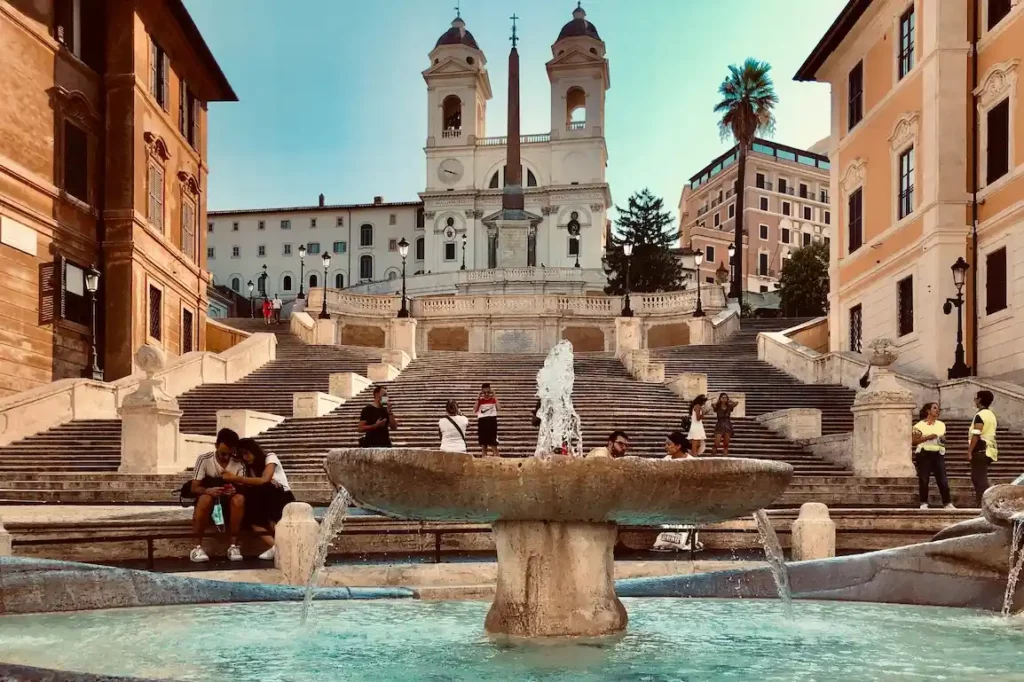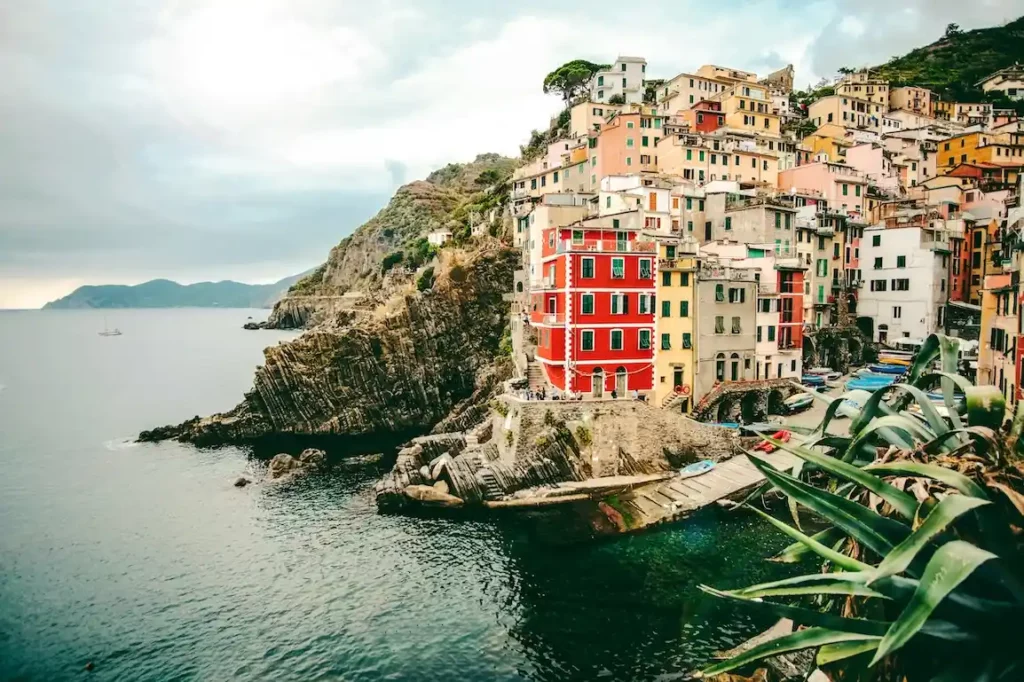Home > Long Stay Visas for Italy: Requirements in 2026

Long Stay Visas for Italy: Requirements in 2026
Spending time in Italy is a dream for many. Exploring the ancient landmarks of Rome, meandering down the rows of grapes in an Italian vineyard... there's so much to see, do, and taste!
If you're looking to spend more than 90 days in Italy, you will most likely need to apply for the appropriate Italian long stay visa.
If you are a citizen of an EU, EEA, or Schengen country, you are exempt.
However, if you're a US, UK, or Canadian citizen (among many others), you will need to obtain a visa before enjoying months under the Tuscan sun.
Do I need a long stay visa for Italy?
If you want to stay in Italy for more than 90 days and you are not a citizen of a Schengen, EU, or EEA country, then you have to apply for a long stay visa before traveling.
There are many different types of visas depending on what you're planning to do in Italy, such as work, study, or reunite with a family member.
The visa you will need to apply for will depend on your goals.

Types of long stay visas for Italy
You may be happy to learn that there are several visas available for long stays in Italy. These visas are referred to as national visas. You may also see them referred to as "Type D".
The visa that you need to apply for depends on what you will be doing while in Italy.
?? Please note that the information found below is from the Italian Embassy, specifically detailed for US residents. Processes and offerings may vary depending on the applicant's nationality/residency.
Long stay visas for working in Italy
Not any visa will give you the right to work in Italy. Only specific visas allow the right to work. On top of that, different visas permit different types of work under specific circumstances.
Below are some of the long stay visas that Italy offers for foreign workers, as well as their eligibility requirements.
Please note that you should always gather actionable information from official sites, such as the Italian Embassy - especially when it comes to visa options, eligibility, and requirements. They will have the most up-to-date and accurate information.
Long stay visa for self-employed workers
If you're self-employed and are hoping to either take your work overseas or work while overseas, you may need to look into Italy's self-employment national visa. There are a few different scenarios where you may qualify for a self-employment national visa for long stays in Italy. This includes:
- Business owners looking to move their business/operations or start a new business in Italy.
- Partners and chairmen of businesses starting/relocating to Italy.
- Managers or highly qualified employees.
- Some academics such as university professors and university language tutors.
- Interpreters/translators.
- Athletes and other sports personnel.
- Entertainment industry professionals.
- Artists.
Eligibility and requirements for a self-employment visa in Italy will depend on which category you fall under. In general, you will need a valid passport (with 3 months of validity beyond your departure), recent photos (passport-sized), and proof of accommodation while in Italy. Then, there are additional requirements depending on your specific category.

Long stay visa for employees
If you have been offered a job by an Italian company, first, congratulations! Second, you may need to apply for a subordinate work visa.
This visa will require your new Italian employer to request a nulla osta. This request needs to be at the Sportello Unico per l’Immigrazione. Essentially, they need to request entry clearance for you at the official immigration desk in Italy. This clearance allows your visa application to be processed.
Once the clearance is granted, the job contract will be sent to the Diplomatic Representation. This process is mandatory for those seeking a subordinate worker visa in Italy.
Long stay visa for digital nomads/remote workers
Italy is an early adopter of the digital nomad visa. This visa allows some foreigners to work remotely for their jobs back home (outside of Italy) while residing in Italy.
There are a couple of things to be aware of when it comes to this visa. Italy's digital nomad visa is specifically for highly skilled professionals with continued education of a post-secondary degree and at least three years of professional training or experience.
If this doesn't apply to you, but you do work remotely, there is another type of visa that may work for you. This is the subordinate work/remote worker visa. Similarly, it allows you to work remotely in Italy for your company back home.
For US citizens, the requirements are similar between the digital nomad visa and the subordinate work/remote worker visa.
For both visas, the following documents are required for US citizens before applying for your long stay visa.
- A valid passport with 15 months of validity beyond your intended departure from the Schengen area (including Italy).
- Proof of physical residence in the States.
- A completed Italian national visa application.
- One recent photograph that adheres to ICAO standards.
- Proof of adequate, Schengen-compliant travel insurance.
- Proof that you have a qualifying profession.
- Proof of accommodation that is a lease, rental contract, or deed for a property in Italy.
- Proof of income that is at least 3 times the minimum legal income in Italy.
- Proof of at least 6 months of professional experience in your field.
- Payment of application fee(s) and a self-addressed pre-paid envelope under specific directions.
The subordinate work/remote work visa has a couple of additional requirements. They are:
- An employment contract where your salary meets a minimum requirement (you can learn more about specific details surrounding this through the Italian Embassy).
- A letter from your employer that you haven't been convicted of any crimes in the past 5 years related to a variety of different things, such as illegal immigration and exploitation of minor workers. More details can be found on the official Italian Embassy website.
- You must have the right to "work anywhere" at your company (or at least in the Schengen area).

Long stay visas for those who want to permanently move to Italy
There is an option for people who want to reside in Italy, but it isn't for everyone.
Italy's elective residency visa allows US residents with "high self-sustaining incomes" or financial assets to stay in Italy long-term.
This income cannot be from an employer. It must be a revenue stream (or assets) that gives you a reliable, steady stream of income to cover your lifestyle in Italy.
When you apply for an elective residency permit in Italy, you will need to prove your financial status. This can be done by providing proof of pensions, annuities, property income, and/or stable economic/commercial activities.
An elective residency visa does not allow you to work while in Italy, which is why it's so important that your revenue stream is consistent, stable, and longstanding.
Along with proof of finance, you'll also need to write a letter detailing your intention to move to Italy. You'll also need to secure housing before applying for your visa. One of the required documents is a lease/deed in Italy.
Long stay visas for students
Students looking to study abroad in Italy may be eligible to apply for a student visa.
In order to apply as part of an exchange program with your American university, you must already have an acceptance letter from an Italian educational institution, a letter from your current university, and accommodations in Italy secured.
As part of your application, you will also need to show proof of Schengen-compliant travel insurance for the first 15 days of your stay in Italy, bank statements/letters to show proof of sufficient funds, a valid passport, and more. All of the exact requirements can be found on the Italian Embassy's website.
If you're applying through a university program at your school, they may also be able to help guide you through the process.
It's also possible to study abroad in Italy without going through an American university program. There are a few different visa options available to you. You can check the details to see if you're eligible on the Italian Embassy's official site.

Long stay visas for family reasons
Spouses, children, and dependent parents of Italian citizens and residents may be able to reside in Italy through a family reasons visa.
To apply, you will need to show proof of relationship(s). This could be a marriage license or birth certificate, for example. The exact document required will depend on the family member's relation to you.
If you're a foreigner who has married an Italian citizen, you will need to register your marriage with the relevant Italian Consulate before you apply for your visa.
The Italian Embassy can provide more information about what the specific requirements are for your situation.
Long stay visas for other reasons
Other types of long stay visas for Italy exist. These include visas for religious activities, family of US military personnel (for Americans), and more.
Whether or not you are eligible to apply for any and all long stay visas for Italy depends on whether or not you meet the minimum requirements set out by the Italian Embassy.
